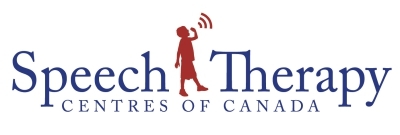Speech-Language Pathology and Concussion
Jeanette Podolsky
Speech-language Pathologist
BA (Speech & Hearing Therapy)
Wits. Reg CASLPO
Mary (not an actual client) is a grade 12 honours student who was involved in a motor vehicle accident (MVA) in October 2017. Prior to the accident, she was planning on starting university in September 2018 to pursue a degree in Engineering. After experiencing some of the more typical symptoms of concussion such as headaches, nausea, mild memory loss, and fatigue she returned to school gradually two weeks after her MVA.
Once she returned to school, she continued to experience the same symptoms and struggled to keep up with the workload. During the first month following the accident, her main focus was on the more physical symptoms e.g. headaches and nausea. However, her symptoms persisted beyond the first 4 weeks. As school demands increased, some other symptoms became more evident. She began to struggle with school work.
At this time, Mary was referred to a Neurologist who made a referral to a speech-language pathologist (SLP) to address her cognitive-communication difficulties (see definition below)
Some of the more obvious difficulties included:
- A strategic thinking impairment which made it harder for her to follow the main ideas of a conversation and academic information;
- Disorganized storytelling both verbally and in written form;
- Memory difficulties which affected her ability to follow instructional language in the classroom and conversations with friends;
- Listening and attention challenges;
- Verbal reasoning issues which made it difficult for her to offer opinions;
- Slower auditory processing which meant she responded to information at a slower rate; and
- Word-finding difficulties
The sum of these cognitive-communication difficulties resulted in severe functional communication difficulty. Schoolwork was much more difficult and Mary could not keep up with her previously active social life. She faced increasing social isolation and began suffering from anxiety. Her goal of entering university was put on hold.
Speech-language therapy was considered essential in order to ensure that she obtained the necessary support in the classroom and with her social/personal life.
According to Eagan Brown “If a student with a concussion does not recover within the typical 1 to 4-week time frame, SLP’s are ESSENTIAL in helping the school team with the medical provider determine the underlying learning issues and problem solve supports for a longer period of time.” [i]
Other referrals to an occupational therapist (OT) and psychologist were also necessary in order to ensure that all of her other symptoms were dealt with e.g. fatigue, anxiety etc.
Some facts about concussion:
- Majority (70%) resolve in a 4 week period, longer for children and adolescents [ii]
- USA – 375,000 in Emergency Room
- Many ‘look good” so subtle symptoms are missed
- Academic support is essential
- This includes adjustments/accommodations through a school, S-LP, OT, psychologist, social worker, family partnership
COGNITIVE-COMMUNICATION DEFINITION [iii]
The College of Audiologists and Speech-Language Pathologists (CASLPO) states that:
‘Cognitive-Communication Disorders’ is a term used to describe a set of communication features that result from underlying deficits in cognition. Communication difficulties can include issues with hearing, listening, understanding, speaking, reading, writing, conversational interaction and social communication. These disorders may occur as a result of underlying deficits with cognition, that is attention, orientation, memory, organization, information processing, reasoning, problem-solving, executive functions, or self-regulation (ASHA 2005; Ylvisaker & Johnson Greene, 2004; Turkstra et al., 2002; Kennedy et al., 2008). Acquired Cognitive-Communication Disorders are distinct from other neurological communication disorders, for example, aphasia as a result of stroke (ASHA, 2005; MacDonald & Wiseman-Hakes, 2010).
[i] Eagan Brown, Brenda Get schooled on Concussion: Return to Learn, SpeechPathology.com August 24th 2017.
[ii] Eagan Brown, Brenda Get schooled on Concussion: Return to Learn, SpeechPathology.com August 24th 2017.
[iii] College of Audiologists and Speech-Language Pathologists of Ontario (CASLPO). Practice Standards & Guidelines for Acquired Cognitive-Communication Disorders, Page 2. 2015.
